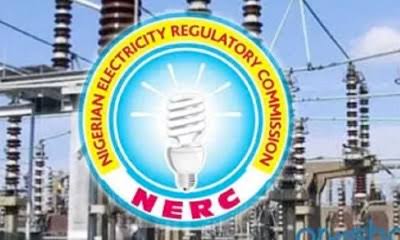In response to growing concerns over a potential electricity tariff hike, the Nigerian Electricity Regulatory Commission (NERC) has introduced new regulations detailing the procedure for tariff reviews in the power sector. The move aims to ensure transparency, efficiency, and a fair pricing system for electricity consumers and industry operators.
The new order, signed by NERC Chairman Sanusi Garba, is based on the provisions of the Electricity Act 2023. According to the commission, the regulations are designed to balance the interests of consumers and electricity providers by ensuring that licensees recover prudent costs while earning a reasonable return on investments.
Multi-Year Tariff Order Framework
NERC reaffirmed that electricity tariffs in Nigeria would continue to be determined through the Multi-Year Tariff Order (MYTO) Methodology, an incentive-based price regulation framework. Under this system, a major tariff review will take place every five years, with all assumptions and financial considerations reassessed to maintain the sector’s viability.
“The commission shall, one year before the expiration of the major tariff review order in force or as may be considered necessary, issue a notice to all licensees about its intention to commence the process for a major review,” the regulation states.
Licensees will be required to submit applications for tariff review within 120 days of this notice, supported by audited financial statements, budgets, investment plans, and evidence of consultations with customers.
After receiving these applications, NERC will develop a consultation paper within 90 days, outlining capital investments, service improvements, loss reductions, and the potential impact on electricity rates. The consultation paper will be published online, with stakeholders given 21 days to submit their comments.
Following the review of public comments, a Rate Case Hearing will be conducted within 90 days, leading to a final tariff decision within 30 days of the hearing.
Monthly and Minor Tariff Reviews
Apart from the five-yearly major reviews, NERC also announced that minor tariff adjustments could occur on a monthly or semi-annual basis. These will account for fluctuations in fuel costs, inflation rates in Nigeria and the United States, exchange rate variations, and power generation levels.
Government’s Plan for Targeted Subsidy System
The Special Adviser to President Bola Tinubu on Energy, Olu Verheijen, revealed that an electricity tariff review is expected in the coming months. She emphasized the need for a more efficient subsidy system, as the current N200 billion monthly subsidy disproportionately benefits the wealthiest Nigerians rather than low-income households.
“Today, the Federal Government spends over N200 billion per month on electricity subsidies, but much of this support benefits the wealthiest 25 per cent of Nigerians rather than those who truly need assistance,” Verheijen stated.
She assured that the government is working towards a targeted subsidy system to ensure that low-income families receive greater support, making electricity more affordable for millions of Nigerians.
Implications for Consumers
The new regulations are expected to enhance transparency in tariff adjustments while ensuring that stakeholders, including consumers, are actively engaged in the decision-making process. However, with the anticipated review in a few months, Nigerians remain concerned about potential increases in electricity bills and how the government’s subsidy reforms will impact them.
While NERC has outlined a structured approach to tariff determination, the success of these policies will depend on their implementation and the ability of the government to balance affordability with sustainability in the power sector.
 Financial Energy Review
Financial Energy Review





